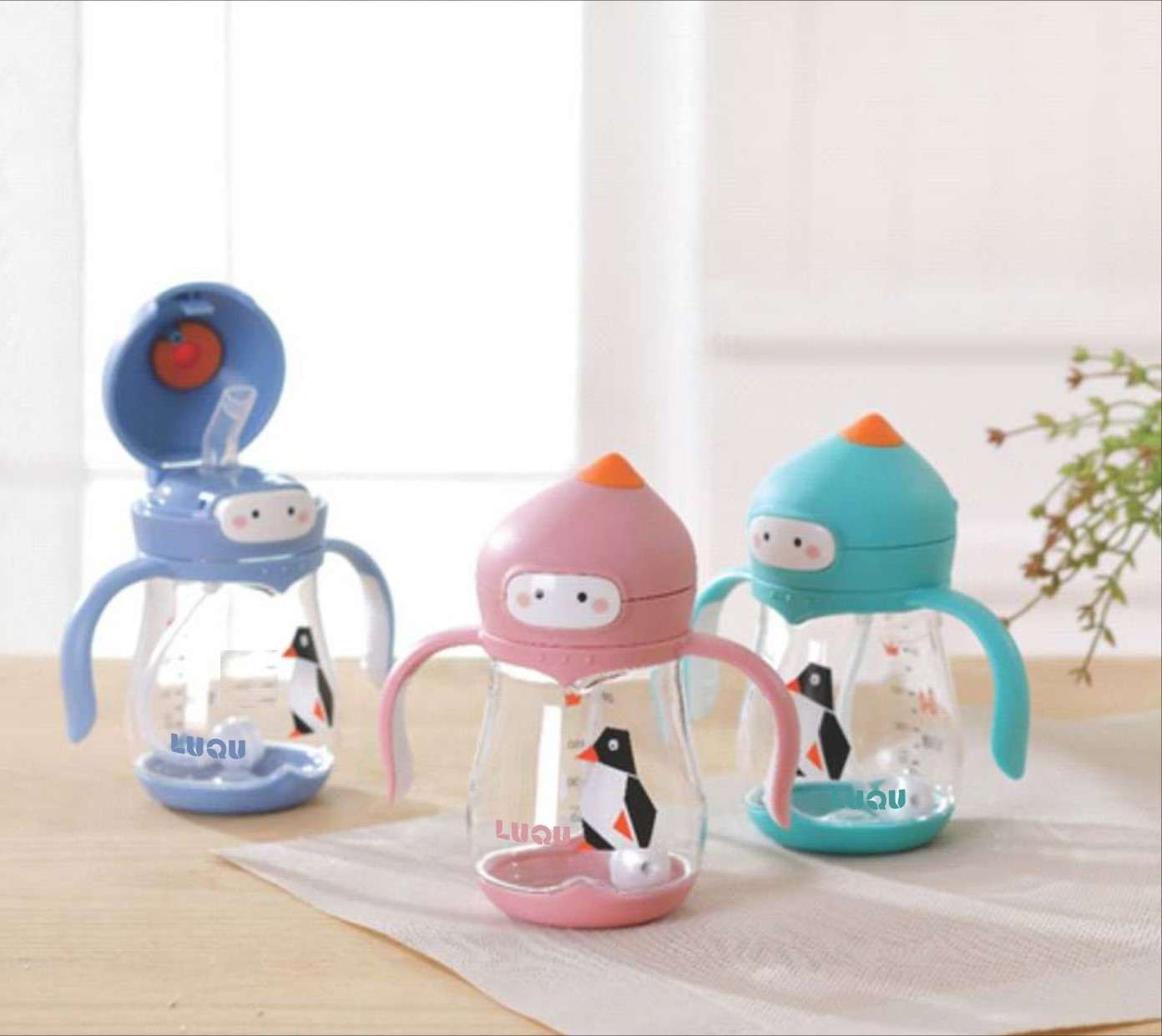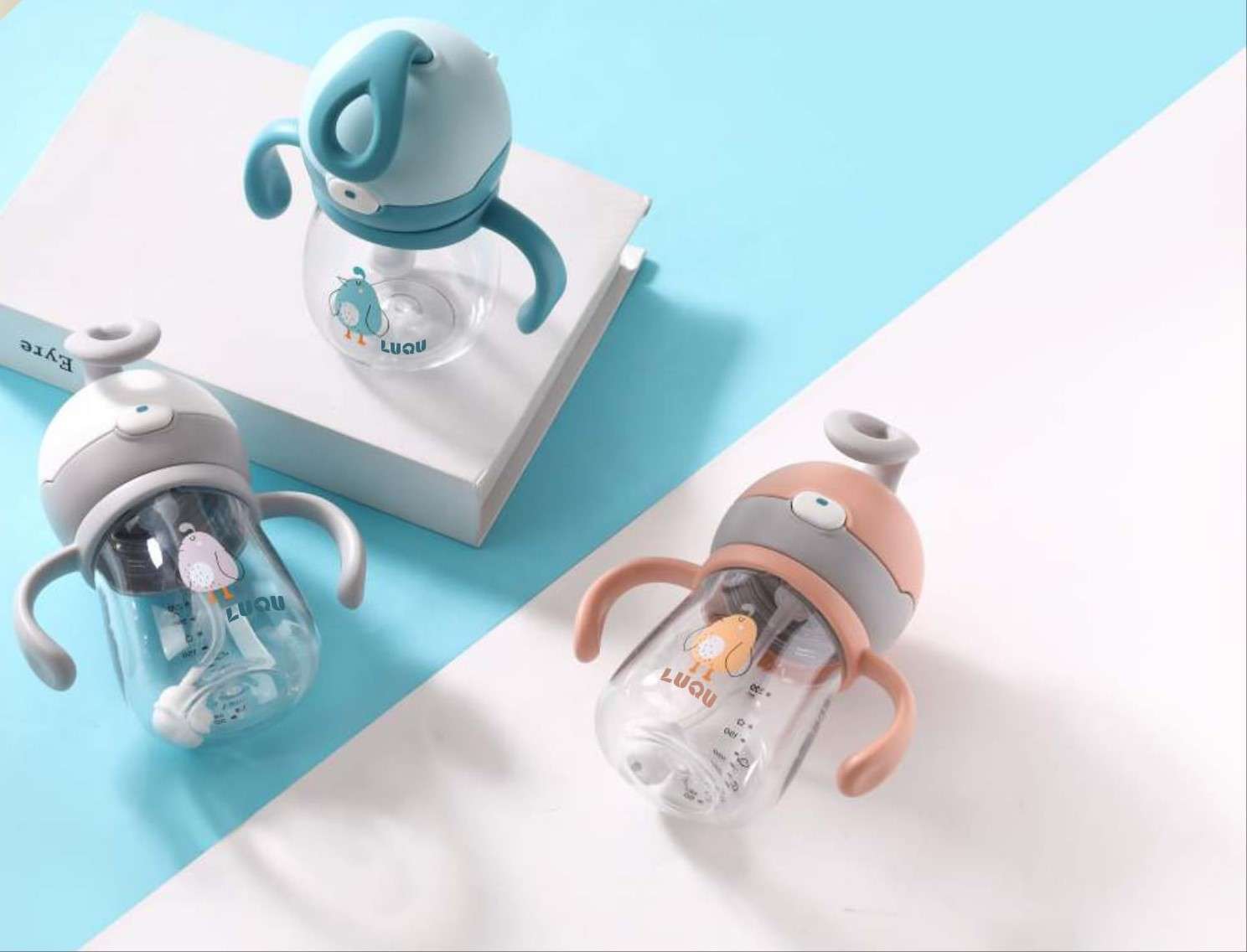Sippy cups are an amazing tool to help the transition from bottle to cup. They’re an easy way to teach your child how to drink from a big kid cup and handy for traveling – all the while avoiding leaks and spills. What’s not to love?
While sippy cups are useful and important cups for your child’s development, some parents worry about the potential harm they could cause to their teeth. Keep reading to learn about the risks of using sippy cups for a prolonged time, how to avoid any damage, and which sippy cups are best.

When Should Children Use Sippy Cups?
It’s usually recommended that children are introduced to a sippy cup from around six months old. This is because, at this age, most babies can comfortably sit up and hold their heads steady and have a firmer grip to hold things. But don’t panic if your child isn’t quite there yet and needs another month or two before attempting to use a sippy cup.
Sippy cups are intended to be temporary transitional cups between the bottle and the open cup. By the time they are 12 months old, they should start working toward drinking from the open cup, and at two years old, they should be developmentally ready to say goodbye to the sippy cup once and for all.
Are Sippy Cups Bad for Children’s Teeth?
As soon as your little one’s teeth begin to emerge, they are at risk for tooth decay, so it’s vitally important to implement proper oral care as soon as possible. But, despite the popular myth, sippy cups themselves are not bad for your children’s teeth and do not cause tooth decay.
It’s important to keep in mind, though, that prolonged use and incorrect use can potentially lead to teeth problems, among other issues, such as throwing off their feeding patterns, a decreased appetite, and delays in speech development. If your older child wanders around the house using a sippy cup, there is also the risk of them falling over and hurting their teeth on the cup.
How to Avoid Damage to your Child’s Teeth?
These risks mentioned can become very minimal if you use sippy cups safely and practice good dental care with your children. Below are some useful tips to help you to avoid damaging your child’s teeth while they use a sippy cup:
Avoid sugary drinks: Sugary drinks, like fruit juice, can be bad for your child’s oral health and contribute to cavities if they’re drinking juice for a long time throughout the day. Ideally, you should give them only water, milk, or formula in their sippy cup. If you want to give your child juice as a treat, only do it at mealtime, when their saliva production is at its highest.
Clean sippy cups often: Bacteria building up in sippy cups is bad for your child’s health and can lead to tooth decay. Every time your child has finished drinking, don’t let any liquids sit in the cup for a long time, and clean them out right away with antibacterial soap and warm water.
Don’t take sippy cups to bed: Using a sippy cup at night or as a comfort during bedtime can lead to dental development issues and a misaligned jaw position, and your child will be continuously sipping from the cup day and night. You should also make sure to brush and clean your child’s teeth and mouth just before they sleep and not allow any sugary drinks afterward.
Sippy cups are perfect to use at mealtimes or when you’re on the go as a way to teach your child how to drink from a cup to help build up their mouth and tongue muscles. However, they should only be used as a temporary transition. Once your child is confident in using the sippy cup, try to make the switch and encourage them to use open cups.
The Best Sippy Cups to Choose to Support Your Child’s Dental Health
Not all sippy cups are the same, and choosing the right cup to help support your child’s dental health is essential. Here are some things to look out for when choosing a sippy cup:
Sippy cups with a spout:
Cups with a soft silicone spout promote good drinking habits and strengthen the mouth muscles in a way baby bottles can’t. If your child is struggling with the transition, choose a sippy cup with interchangeable spouts and nipples to help ease them off.
Sippy cups with a straw:
Straw cups are practical and perfect for traveling. They can help further improve mouth and tongue muscles and swallowing skills while protecting teeth alignment.
Two-handled sippy cups:
Cups with two handles make holding them comfortable and much easier for a child. It’s also good practice for when they move on to a big cup that often needs to be held by two hands.
Whether you’re searching for a beginner Sippy cup or a more advanced Sippy cup, all of the cups in our Luqu range are perfectly suitable for your child’s dental health.
If you’re looking to transition from a sippy cup to an open cup, check out our innovative range of the 360 Wonder Cup, which helps to support natural drinking development with a soft silicone rim that can be sipped from all sides.












